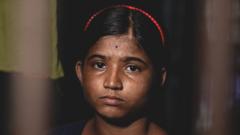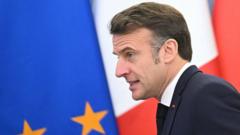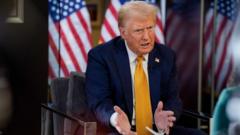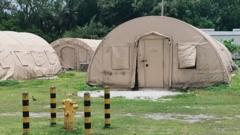The upcoming Irish general election embodies a complex interplay of political dynamics, with significant stakes for both the ruling party and the opposition. The government coalition led by Fine Gael, which has faced growing scrutiny, aims to retain power against a backdrop of shifting voter sentiments, economic pressures, and social challenges.
### What's at Stake in the Upcoming Irish General Election

### What's at Stake in the Upcoming Irish General Election
As the first major electoral test for Fine Gael leader Simon Harris approaches, the political landscape in Ireland faces pivotal challenges from various parties.
The dissolution of the Dáil, requested by Simon Harris, marks the beginning of an electoral battleground where Sinn Féin's previous successes are contrasted by their recent challenges. Their 2020 performance, which disrupted the longstanding Fine Gael-Fianna Fáil dominance, now adds pressure as they navigate through past controversies and recent election setbacks. With housing and immigration at the forefront of public concerns, all parties must articulate viable solutions in a politically volatile landscape, highlighting the intricate relationship between emerging political ideologies and urgent societal needs.
Fine Gael, under Harris' leadership, seeks to recover from a difficult electoral history and leverage recent budgetary announcements to win voter support. Fianna Fáil faces its own scrutiny under long-time leader Micheál Martin, who must contend with both general public opinion and the surge of independent candidates. As Ireland readies for this electoral confrontation, the potential for unexpected outcomes, campaign controversies, and shifts in party fortunes seems palpable in the lead-up to the polls.
Election observations will focus also on how issues like housing and immigration, which have significantly impacted voter sentiment, will influence the election results. The interplay of party tactics and public demand may ultimately shape the future political landscape of Ireland as the campaign gears up.
### Summary
The upcoming Irish general election is a critical moment for Fine Gael, Sinn Féin, and Fianna Fáil, with key issues like housing and immigration challenging party strategies. As Simon Harris leads Fine Gael into this electoral battle, both the ruling coalition and opposition parties face significant stakes that could redefine the political balance in Ireland.
As the Irish general election unfolds, its implications could fundamentally reshape the political landscape, urging parties to address pressing public issues and compete for voter trust amid a climate of change and uncertainty.
Fine Gael, under Harris' leadership, seeks to recover from a difficult electoral history and leverage recent budgetary announcements to win voter support. Fianna Fáil faces its own scrutiny under long-time leader Micheál Martin, who must contend with both general public opinion and the surge of independent candidates. As Ireland readies for this electoral confrontation, the potential for unexpected outcomes, campaign controversies, and shifts in party fortunes seems palpable in the lead-up to the polls.
Election observations will focus also on how issues like housing and immigration, which have significantly impacted voter sentiment, will influence the election results. The interplay of party tactics and public demand may ultimately shape the future political landscape of Ireland as the campaign gears up.
### Summary
The upcoming Irish general election is a critical moment for Fine Gael, Sinn Féin, and Fianna Fáil, with key issues like housing and immigration challenging party strategies. As Simon Harris leads Fine Gael into this electoral battle, both the ruling coalition and opposition parties face significant stakes that could redefine the political balance in Ireland.
As the Irish general election unfolds, its implications could fundamentally reshape the political landscape, urging parties to address pressing public issues and compete for voter trust amid a climate of change and uncertainty.


















